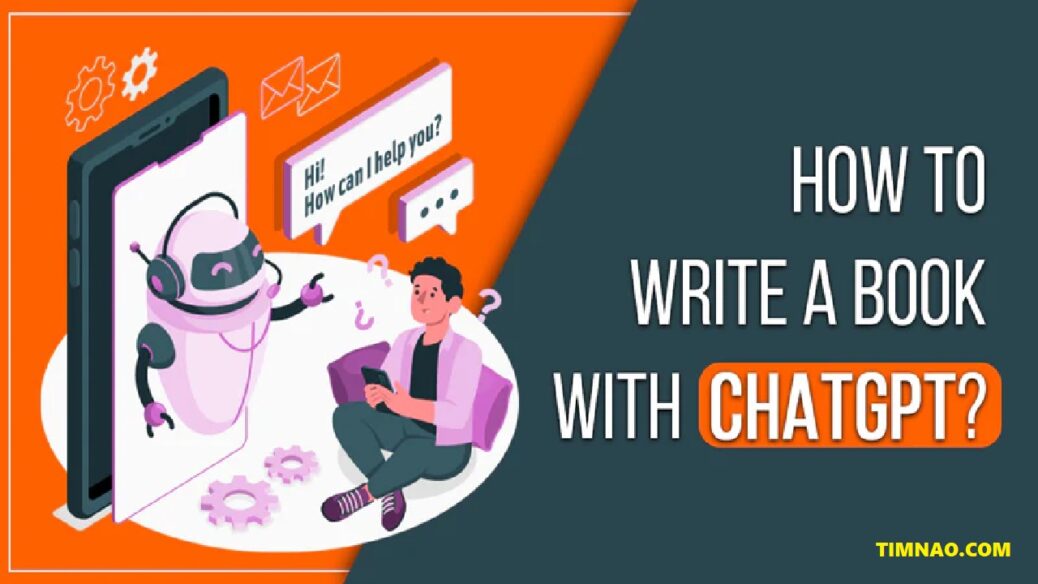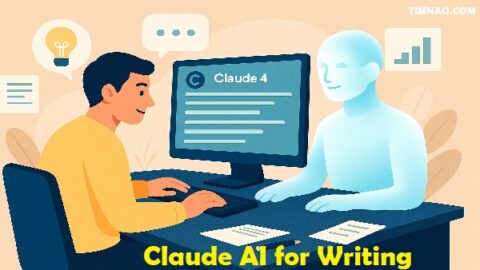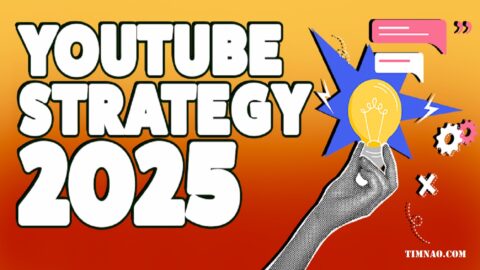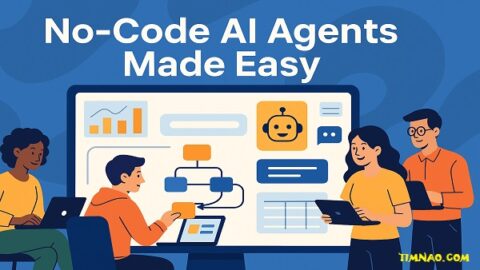Introduction
Writing books with ChatGPT has revolutionized the publishing industry. Authors now have access to AI tools that speed up writing, enhance creativity, and simplify the self-publishing process. Whether you’re a seasoned writer or a beginner, leveraging ChatGPT for authors can help you craft high-quality content and publish your work faster than ever before.
ChatGPT book writing is rapidly shifting from a futuristic concept to the “new normal” for aspiring and established authors alike. Imagine harnessing the power of Artificial Intelligence (AI) like ChatGPT from OpenAI to bring your book ideas to life, transforming concepts into polished manuscripts, and navigating the exciting world of self-publishing with AI – all faster and more efficiently than ever before. If you’ve ever dreamed of becoming a published author, perhaps even an Amazon bestseller, the synergy between AI tools like ChatGPT and the burgeoning self-publishing market presents an “incredible opportunity”.
This guide is your comprehensive roadmap to becoming a successful AI author. We’ll delve deep into how you can write books with ChatGPT, leveraging its capabilities for everything from initial brainstorming to final edits. We’ll explore the booming self-publishing landscape, outline a clear, step-by-step process, highlight essential tools, and address the potential challenges, ensuring you’re well-equipped to turn your authorial aspirations into reality. Forget the daunting image of the solitary writer struggling for months; the age of AI-assisted authorship is here, and it’s time to embrace it.
The Incredible Opportunity: Self-Publishing with AI in 2025
Let’s dispel a common myth: the book market is far from dead. In fact, despite whispers to the contrary, the global book and ebook market was valued at over $137 billion in 2024. While its growth is steady at around 2% CAGR, the real excitement lies in related sectors. The global audiobook market is exploding, valued around $6 billion and growing at a staggering 25-26% CAGR. Furthermore, self-publishing with AI and traditional self-publishing methods are significantly outpacing traditional publishing, boasting growth rates between 7-9% annually. Projections suggest the global self-publishing market could exceed $20 billion in annual revenue by 2025, cementing its status as a literary powerhouse.
Why Write Books with ChatGPT? The AI Advantage
Integrating AI, specifically tools like ChatGPT or Claude 3 from Anthropic, into your writing process offers transformative benefits. The most obvious advantage is speed and efficiency. ChatGPT can generate draft content, outlines, or brainstorming lists significantly faster than manual writing, potentially turning a months-long project into weeks or even days. David M. Patel suggests it’s possible to get a manuscript ready for polishing within a day and publishable within seven.
Beyond speed, AI acts as a powerful creative assistant. Stuck on a plot point? Need character ideas? Want to explore different angles for your non-fiction topic? ChatGPT can provide suggestions, generate alternative phrasing, and help you overcome the dreaded writer’s block. It can analyze trends, suggest relevant themes for your target audience, and even help craft compelling marketing copy.
Modern AI writing tools, like those offered by Grammarly, go beyond simple text generation, understanding context to help rephrase, adjust tone, summarize complex ideas, and even draft entire paragraphs or emails based on simple prompts. While AI isn’t a magic bullet (we’ll discuss limitations later), using it strategically for ChatGPT book writing can streamline your workflow, enhance creativity, and free up your time to focus on the core message and unique human elements of your work.
In this guide, we’ll cover 15 proven ways to writing books with ChatGPT and successfully self-publish them. Let’s dive in!
1. Choose a Profitable Book Topic
Not all book ideas are equally profitable. Use AI tools like ChatGPT to brainstorm trending topics, conduct market research, and analyze bestsellers in your niche.
Recommended Tools:
2. Create an Effective Book Outline
A well-structured outline makes writing easier. ChatGPT can draft a detailed book outline, including chapters and subtopics.
How to Use ChatGPT for Outlining:
- Ask it to create an outline for your book topic.
- Refine the structure by adding personal insights.
- Expand on each chapter with AI-generated content.
Recommended Tools:
3. Speed Up the Writing Process
AI writing tools like ChatGPT can draft entire chapters, helping you maintain a steady writing flow.
Tips for AI-Enhanced Writing:
- Write a rough draft with ChatGPT, then refine it manually.
- Use AI for generating engaging introductions and conclusions.
- Maintain your unique writing style by editing AI-generated text.
Recommended Tools:
4. Improve Content Quality with AI Editing
Grammar, clarity, and style are crucial for a professional book. ChatGPT and tools like Grammarly can polish your content.
AI Editing Techniques:
- Use ChatGPT for rewording sentences for better readability.
- Check grammar, punctuation, and spelling errors.
- Improve sentence structure for better flow.
Recommended Tools:
5. Create Engaging Book Titles and Subtitles
A compelling title is key to attracting readers. Use AI to generate catchy book titles and subtitles.
Recommended Tools:
6. Generate Book Descriptions for Marketing
An engaging book description boosts sales. ChatGPT can craft compelling descriptions optimized for Amazon and other platforms.
Recommended Tools:
7. Format Your Manuscript Professionally
Proper formatting is essential for ebooks and print editions. ChatGPT can guide you through the process.
Recommended Tools:
8. Design a High-Converting Book Cover
A book cover is your first impression. AI tools like MidJourney or Canva can assist in designing a professional-looking cover.
Recommended Tools:
9. Self-Publish on Amazon Kindle Direct Publishing (KDP)
Amazon KDP is the most popular platform for self-publishing. ChatGPT can help you optimize your book’s metadata, keywords, and pricing.
Recommended Tools:
10. Leverage AI for Marketing & Promotion
Marketing is key to book success. AI can help with social media posts, ad copy, and email campaigns.
Recommended Tools:
11. Build an Author Brand with AI Assistance
Establishing an online presence helps boost book sales. AI can assist in website content, blog posts, and social media management.
Recommended Tools:
12. Use AI for Audiobook Creation
Audiobooks are growing in popularity. AI tools like ElevenLabs can convert text into high-quality audiobook narration.
Recommended Tools:
13. Collect and Analyze Reader Feedback
Understanding your audience helps improve future books. AI can analyze reader reviews and suggest improvements.
Recommended Tools:
14. Automate Book Sales Tracking & Analysis
AI can track sales data and provide insights on marketing effectiveness.
Recommended Tools:
15. Scale Your Writing Business with AI
Once you master AI-powered book writing, you can scale your business by publishing more books efficiently.
Recommended Tools:
Many tools offer free tiers or trials, allowing you to experiment before committing.
Navigating the Pros and Cons of AI Book Writing
Embracing ChatGPT book writing offers compelling advantages but also comes with potential downsides:
Pros:
- Efficiency and Speed: Drastically reduces drafting time.
- Lower Initial Costs: Can reduce reliance on hiring writers or expensive brainstorming sessions. Potentially lowers editing costs if used effectively before human review.
- Creative Assistance: Helps overcome writer’s block and generate ideas.
- Flexibility and Control: Retain full ownership and control over content, pricing, and marketing.
- Accessibility: Lowers barriers for new authors to enter the market.
Cons:
- Quality & Authenticity Concerns: AI output can be generic, repetitive, or lack emotional depth. Requires significant human oversight, editing, and fact-checking.
- Market Saturation: The ease of publishing increases competition. Standing out requires quality, uniqueness, and strong marketing.
- Required Skills: Success demands a blend of writing, editing, marketing, and basic technical/AI proficiency.
- AI Limitations: Cannot replicate deep human creativity, nuance, or lived experience. Output can be monotonous if not carefully guided and edited.
- Rising Costs: While initial writing might be cheaper, professional editing, cover design, and especially marketing/advertising costs are increasing.
- Algorithm Dependence: Sales can be heavily influenced by platform algorithms (like Amazon’s), which change frequently.
- Ethical & IP Concerns: Questions around copyright for purely AI-generated content persist. Transparency (e.g., labeling AI narration) is becoming crucial. Proving human contribution is key for IP protection.
Successfully becoming an AI author involves leveraging AI’s strengths while diligently mitigating its weaknesses through human effort and skill.
Measuring Your Success: Key KPIs for Self-Publishing
To gauge the effectiveness of your self-publishing with AI efforts, track these Key Performance Indicators (KPIs):
- Sales Volume: Total number of books sold (ebook, print, audio) over time. A direct measure of market acceptance.
- Revenue: Total earnings from sales after platform fees and printing costs. Crucial for financial viability.
- Readership Growth: Increase in followers, email subscribers, or website visits. Indicates growing author platform reach.
- Reviews and Ratings: Quantity and quality of reader reviews. Impacts visibility, credibility, and algorithms.
- Return on Investment (ROI): Profitability compared to your investment in time, tools, editing, design, and marketing. Determines if your efforts are financially sustainable.
Monitoring these metrics helps you understand what’s working, refine your strategies, and make informed decisions about future projects.
Case Study Spotlight: Real Authors, Real Results
Consider the example of Rico, a digital entrepreneur who created the “Mindful Wellness Planner”. He identified a market need for a tool focused on mental clarity and self-care. Rico used ChatGPT to generate inspirational text, quotes, and mindfulness exercises for the planner’s content. He designed the planner using BookBolt, opting for a calming aesthetic, and published it via Amazon’s print-on-demand service, eliminating inventory risk. His marketing involved targeted Facebook ads, wellness blog outreach, SEO optimization, and collaborations with Instagram influencers in the mental health niche to increase the planner’s visibility.
The result? Priced at $24.99 with costs around $12.25 (production + Amazon fees), Rico netted $12.75 per planner. In the first 45 days, he sold approximately 200 units, generating $2,550 in royalties. This demonstrates the potential of combining a well-chosen niche, AI content assistance, smart design choices, platform leverage, and targeted marketing. While not every project yields immediate success, Rico’s story highlights the tangible possibilities within the self-publishing with AI model.
The Future is Now: Ethical AI and the Evolving Author
The integration of AI into publishing is accelerating. We’re seeing AI-powered tools become standard for editing, cover design generation, blurb writing, and even market analysis. AI narration is making audiobooks accessible to more authors than ever before. Automation is streamlining distribution and royalty management.
However, this evolution brings ethical considerations to the forefront. Transparency is key – readers appreciate knowing if narration is AI-generated, and platforms are starting to require this labeling. Intellectual property rights for AI-assisted works are still evolving, emphasizing the need to document and highlight the human author’s creative contributions (prompt engineering, selection, editing, humanization).
The successful AI author of the near future will likely be one who embraces AI as a powerful collaborator, not a replacement. They will use these tools ethically and transparently to enhance their unique human creativity, connect authentically with readers, and navigate the complexities of the digital publishing landscape.
Final Thoughts
Writing books with ChatGPT and self-publishing has never been easier. By leveraging AI, you can enhance creativity, improve efficiency, and maximize profits. Whether you’re a first-time author or a seasoned writer, these 15 proven strategies will help you write, publish, and sell books successfully in 2025.
Start your AI-powered writing journey today and turn your book ideas into reality!
Refer to these videos for more details:









